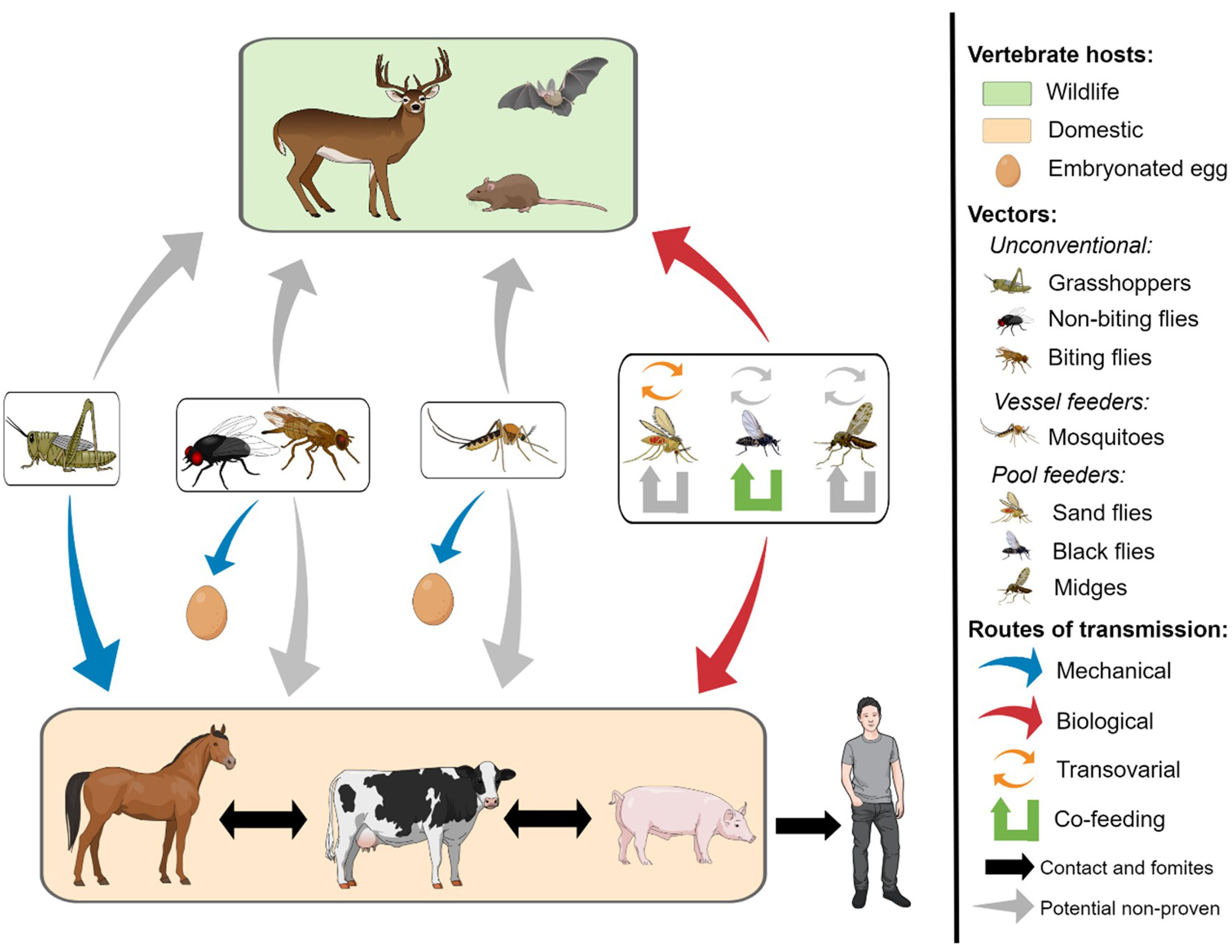Two cases of Vesicular Stomatitis Virus (VSV) have been diagnosed in La Plata County. VSV is a disease that affects cattle, horses, sheep, goats, llamas and swine but is most commonly found in horses and cattle. Animal deaths are rare, but lesions created by the virus can be painful, and if left untreated, some animals may lose their hooves.
The main symptoms of vesicular stomatitis virus are blisters, sores, and sloughing of skin in the mouth, on the tongue, on the muzzle and ears, and above the hooves. Lameness and weight loss may occur. Infected animals are typically quarantined for three to seven days.
VSV is federally listed as a foreign animal disease, meaning it is among several animal diseases that are highly infectious, are reported to state and federal health agencies, and are monitored closely by health officials because of the potential for widespread illness and devastating economic consequences. The U.S. Department of Agriculture requires a specific list of responses to foreign animal diseases, including testing, confirmation of infection, quarantine and monitoring. These steps allow for proper diagnosis and help stop spread of disease.
Flies and midges are the main vectors for VSV. The virus is also spread through direct contact, meaning when an infected animal touches noses with another animal. Indirect contact is also a concern; this occurs when an infected animal sheds virus onto something like: a water bucket, a trailer, fence panels, or grooming equipment, and then another animal picks up the virus from that object. Fly control is the most important step, and should be taken very seriously. We recommend frequent application of fly repellent approved for animals, including on the face and ears. We also advise use of barriers, such as flysheets and face masks. Fly control ear tags or other insect control measures should be utilized with cattle.
Events such as rodeos, livestock sales, fairs and roping competitions are sites where animals may congregate which increases the opportunity for infection. Follow a few simple protocols to reduce the chance of spread when attending this type of events. Separate animals from others. Don’t share tack or feed, watering, and grooming equipment. Don’t tie your animal where others have been tied. Keep hands off other animals and avoid letting other people handle your animals. Disinfect all equipment, including trailer, before and after use. Frequently wash hands and use hand sanitizer. Segregate your traveling animals from others for a week after returning home; monitor your animals for any signs of infection or illness during this time.
The health risk to livestock should subside when freezing temperatures reduce insect populations in the fall.
If you suspect that, you have an infected animal contact your local veterinarian for more information.


